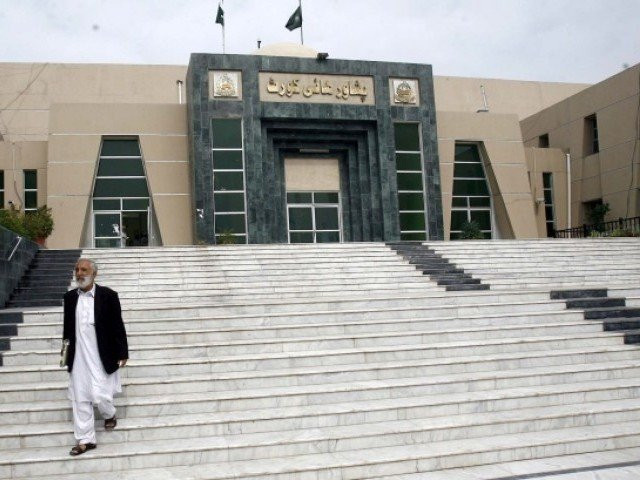Question of sincerity: Reforms committee faces court challenge
Lawyers say committee cannot understand plight of FATA’s residents

Peshawar High Court. PHOTO: PPI
Lawyers from the tribal areas have decided to challenge the veracity of the FATA Reforms Committee in the Peshawar High Court as it does not have any elected representatives from Fata.
“The bill was signed by 19 members of the Parliament, from the tribal areas,” a senior lawyer, Ijaz Mohmand, told The Express Tribune on Friday. “It has already been tabled in the National Assembly therefore the formation of the committee is beyond comprehension.”
The bill was unanimously prepared and also approved by Law and Justice Committee of the Senate, led by Muhammad Kazim Khan. It was discussed the National Assembly Speaker Sardar Ayaz Sadiq who assured of his support.
However, Mohmand questioned the move on part of the assembly, asking why the bill has not been passed yet, even though the government promised reforms in the tribal areas under the National Action Plan. He said each and every person in the tribal areas want to break this status quo, by extending the judicial system, police and proper institutions, adding if ignored serious consequences could follow.
Standing in their shoes?
While criticising the committee, Wali Khan, a senior lawyer at the Supreme Court, said neither of the members of the reforms committee are tribespeople nor have they ever been arrested under the Frontier Crimes Regulation.
“How can they feel the pain tribespeople have been suffering since the last century?”
He spoke about the plight of the tribespeople, saying no one in the tribal areas can file a complaint against any decision of the political agent as suggested by clause 7 of Article 247 of the Constitution of Pakistan.
“The Constitution guarantees equal rights to all citizens of the country under Article 1, but under Article 247 we have no right to appeal in the high court or the Supreme Court of Pakistan, which is in contradiction with the article that guarantees basic rights,” he said. Wali added the Constitution also says that if any law is against the fundamental rights of the citizens, it should be declared null and void, but fundamental rights under articles 8 to 25 of over eight million tribesmen are not guaranteed.
He added tribespeople demand Article 199 be extended to Fata so that they could file writs at high court and apex courts; this would be possible with abolition of Article 247. “Show me a single law throughout the world that allows the arrest of whole a tribe for the crime of one person?” he asked.
However, there are people who still favour of maintaining the status quo and were against the reforms. Such people are the maliks for instance who get special favours under the harsh laws.
“They are not openly opposing the merger with K-P or converting Fata into Pata, instead, they are demanding a separate province,” said Asmatullah Wazir, an analyst and expert on Fata. “They are spreading rumours about the negative roll of policing, loss of cultural values and prolonged litigation in courts if Fata merged with K-P.”
A scuffle reportedly broke out among them after those maliks refused to leave. However, Mohmand said if the government want to bring peace they should implement the National Action Plan and decide the fate of Fata first.
Published in The Express Tribune, January 2nd, 2016.













COMMENTS
Comments are moderated and generally will be posted if they are on-topic and not abusive.
For more information, please see our Comments FAQ